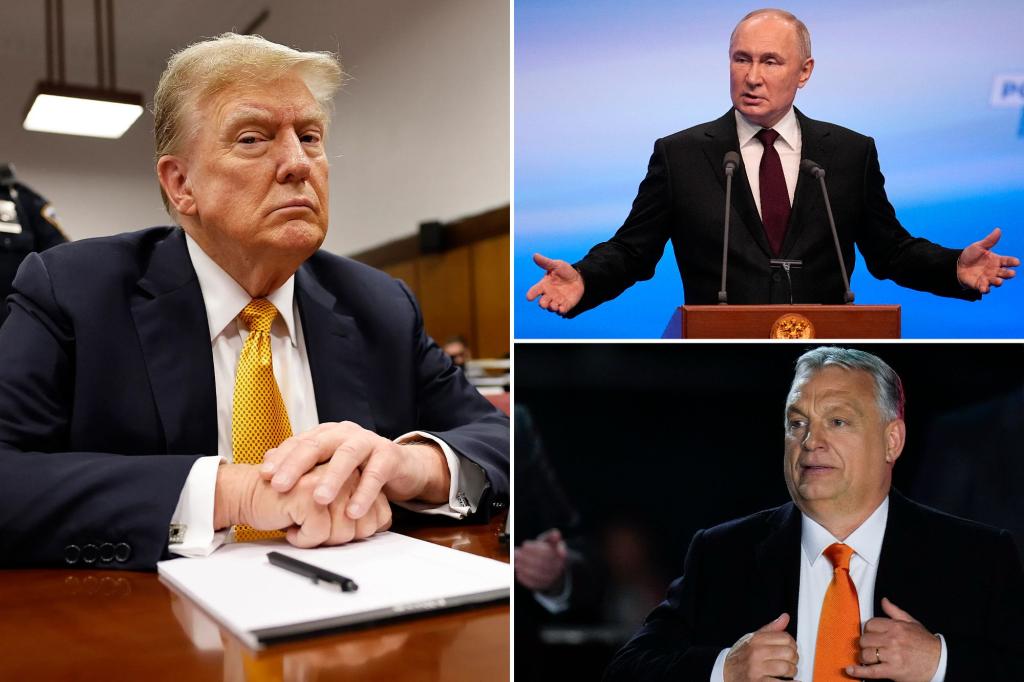After receiving a guilty verdict in his hush money case, former President Donald Trump launched an attack on the US criminal justice system, claiming the trial was rigged, similar to remarks made by the Kremlin. Former White House national security adviser Fiona Hill suggested that Russian President Vladimir Putin could benefit from Trump’s attacks by boosting his own standing among citizens and potentially swaying the upcoming US presidential election where Trump is the presumptive Republican nominee. Several autocratic countries, including Russia, expressed support for Trump following his conviction, with Moscow calling it the “elimination of political rivals by all possible legal or illegal means.”
The growing political turmoil in the US is seen as an opportunity for autocratic leaders, especially Putin, to widen divisions in Western societies and advance a Russian worldview. Russia has been accused of carrying out various attacks to sow discord and stoke anxieties in Western societies, including meddling in the 2016 US election. By undermining the credibility of key US institutions, including the justice system, Trump’s attacks could provide fodder for Russia’s propaganda and influence operations aiming to target swing voters in battleground states ahead of the November election.
Trump’s criticism of the US justice system as being used to persecute him is seen as legitimizing autocratic leaders like Putin who have long criticized democratic institutions. The attacks from Trump and his allies provide an opportunity for Russia to move its points of view from the fringes of the political debate to the mainstream, shaping global security architecture. US administrations have traditionally promoted democracy, free speech, and human rights, but Trump’s actions could undermine these ideals and bolster autocratic states’ legitimacy in the eyes of their people.
Trump’s self-perception as a strongman ruler and his attacks on democratic institutions like the justice system contribute to a narrative that autocratic countries like Russia and China are more reliable partners. This message could resonate with citizens of these countries and those being courted by Russia and China for partnerships in Africa, Asia, and Latin America. The threat posed by this new axis of authoritarians, including Russia, China, Iran, and North Korea, is daunting as they work together with overlapping interests to reshape the global security landscape.
Moscow, in particular, is likely to use the political turmoil in the US to divide the NATO security alliance and undermine the shared values between member states. Western governments face a delicate balance between not alienating Trump as a potential future US president and respecting the US justice system. The situation creates an opportunity for Putin to seek advantages and exploit the chaos for his own benefit. As the US grapples with internal challenges and questions about its democratic institutions, authoritarian regimes like Russia and China stand to gain influence and reshape global security dynamics.












